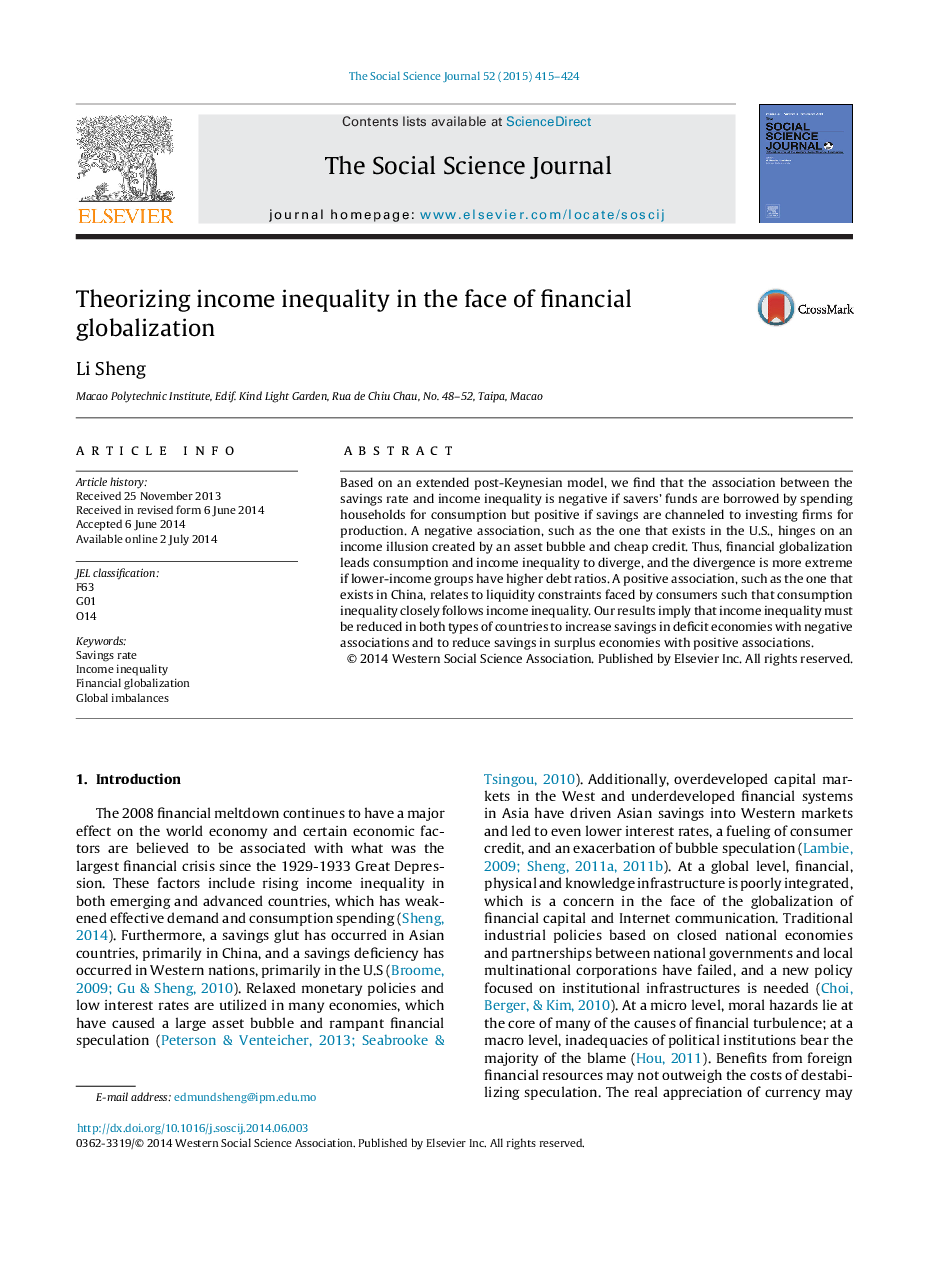| کد مقاله | کد نشریه | سال انتشار | مقاله انگلیسی | نسخه تمام متن |
|---|---|---|---|---|
| 140134 | 162669 | 2015 | 10 صفحه PDF | دانلود رایگان |
• Negative link between saving rate and income inequality if savers’ funds are borrowed by spending households for consumption.
• Positive link between saving rate and income inequality if saving is channeled to investing firms for production.
• Consumption and income inequality diverge under the influence of financial globalization.
• Income inequality must be reduced to increase saving in both deficit and surplus economies.
Based on an extended post-Keynesian model, we find that the association between the savings rate and income inequality is negative if savers’ funds are borrowed by spending households for consumption but positive if savings are channeled to investing firms for production. A negative association, such as the one that exists in the U.S., hinges on an income illusion created by an asset bubble and cheap credit. Thus, financial globalization leads consumption and income inequality to diverge, and the divergence is more extreme if lower-income groups have higher debt ratios. A positive association, such as the one that exists in China, relates to liquidity constraints faced by consumers such that consumption inequality closely follows income inequality. Our results imply that income inequality must be reduced in both types of countries to increase savings in deficit economies with negative associations and to reduce savings in surplus economies with positive associations.
Journal: The Social Science Journal - Volume 52, Issue 3, September 2015, Pages 415–424
